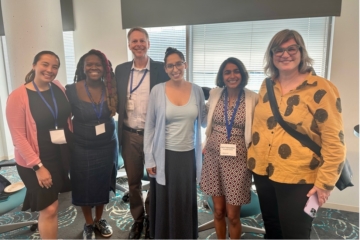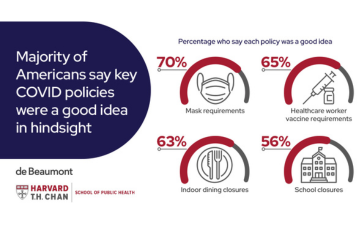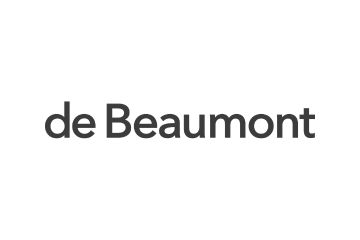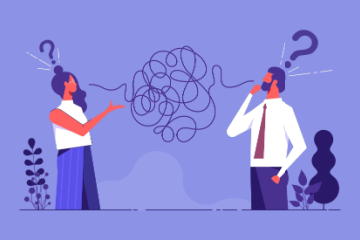Read Julian’s bio. See all 40 Under 40 honorees.
Five Questions for Julian

That feeling when… you just finished an MPH degree and fellowship program.
1. What is one of the most interesting projects you’ve worked on in public health?
We created a Social Justice Roundtable in our agency as a space for colleagues in governmental public health to talk about social justice issues and reflect on what we could do to support social justice work from our unique positions. We were drawn to this because of our personal experiences and engagement in community activism, and it has been meaningful to translate this into our agency’s work on health equity. There are so many social justice issues that have public health implications: police violence, climate change, mass incarceration, displacement, immigration policy… any time there is an injustice occurring, it’s a public health issue.
2. Who or what inspired you to enter the field of public health?
Social movements – especially in environmental justice and climate justice – brought me into the public health arena, initially as a community partner joining an asthma coalition. Public health hadn’t been on my radar, and like many I associated “health” with doctors, hospitals, and insurance companies. Once I realized how the field of public health was much broader, how it was a welcoming home for environmental justice issues, and how it offered unique tools for doing social justice work under the umbrella of health equity, I realized I had found my home.
3. What are the greatest challenges you face in your work?
Political forces that uphold inequities and the status quo are tremendous challenges for public health in general. This is especially challenging for public sector government agencies that must operate in an environment of shifting political priorities and resources.
4. What’s a story or experience that keeps you going, even when you’re feeling challenged?
My paternal grandparents were Holocaust survivors, but despite losing most of their families and experiencing unbelievable horrors, they maintained their humanity and created new life. Remembering their resilience keeps me grounded in what is truly important. My experiences of participating in social movements help keep me going by reminding me that the rights we often take for granted were won by social movements that faced very powerful forces and won victories despite the odds. Each generation has a duty to pick up the torch from those who came before us and carry it forward for future generations. This is especially true in our current time when the planet is facing tipping points because of climate change and the window for making the needed changes is narrowing.
5. As a kid, what did you want to be when you grew up?
A rocket scientist, because I loved applied math and flying and thought it sounded cool. Then I got involved with activism and everything changed. I didn’t care about what I wanted to “be” in terms of a career – it was what could I DO about the injustices in the world. It took me a while to find my path and I went through many stages of personal growth to arrive where I am now. I still don’t have an answer for what I want to be when I grow up, so hopefully I’ll just never stop growing up!




